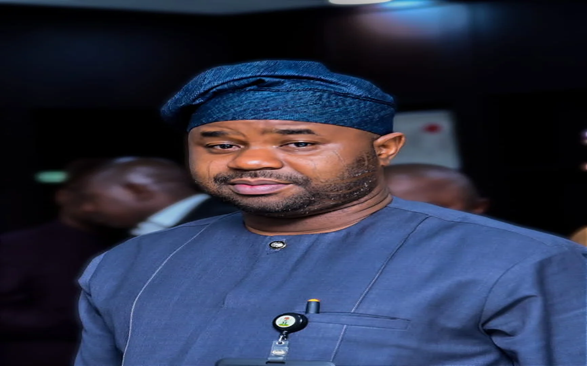The Federal Inland Revenue Service (FIRS), the Federal tax authority in Nigeria, wants tax revenue from crypto services in Nigeria. To achieve this goal, the FIRS plans to work with the National Assembly on a new and comprehensive tax legislation that will overhaul the current tax system, according to the Punch.
Zacch Adedeji, the FIRS Executive Chairman, made this known on Saturday 17 August 2024 at a stakeholder engagement with the Senate and House Committee on Finance with the theme, ‘Repositioning the FIRS to Achieve Its Mandate.’ The stakeholder engagement was organized by the Intergovernmental Relations Department of the Service.
Before biting the crypto cherry, FIRS wants to ensure that there is a legislative backing first.
According to Mr. Adedeji, “The plan first is to have the law that regulates it, and that is why you see that we are here with the legislature, which will be the base of charging. And that is done in any other place in the world when you have this innovation or system, so you just have to get ready for it because you can’t go away from it.”
Although the plan above hasn’t prevented the FIRS from taking enforcement actions against crypto-tax evasion in the country. In fact, the Economic and Financial Crimes Commission (EFCC) has not failed to register its interest in this regard, as Nigeria’s independent financial crimes fighter. However, the Federal High Court has affirmed that the EFCC does not have the legal and statutory authority to assess or enforce the collection of taxes on behalf of the Federal Government of Nigeria.
In enacting the proposed tax legislation, Mr Adedeji hopes that the FIRS will be able to strike a balance between crypto innovation and tax regulation. In his words, “We just have to plan to regulate it [cryptocurrency] in such a way that it is not injurious to the economic development of Nigeria.
FIRS wants to start by overhauling the current tax system.
For a start, the FIRS plans to introduce a comprehensive tax bill to the National Assembly as soon as September 2024. The idea is to “overhaul the whole process of revenue administration in Nigeria”.
In his speech, Mr Adedeji said, “Just to put you on notice, by September, we are proposing a law that would overhaul the whole process of revenue administration in Nigeria, harmonizing, recording and simplifying the tax laws that we have. For example, in the Stamp Duty Act of 1939, when there was no internet connection, we needed to bring it up.
“Today, we cannot run away from cryptocurrency but as we stand today, there is no law anywhere in Nigeria that regulates cryptocurrency. We cannot run away from it.”
Indeed, Nigeria cannot “run away” from cryptocurrency. In fact, millions of Nigerians are increasingly running away with cryptocurrency daily. Nigeria cannot afford to be left behind. No responsible and responsive government should ignore the rate of crypto adoption in Nigeria, regardless of the resistance from regulators, particularly the Central Bank of Nigeria (CBN), over the years.
Did the FIRS impose a 7.5 per cent VAT on crypto transaction fees in the country?
Curiously, the FIRS boss did not make any comment about the recently reported implementation of value added tax (VAT) by KuCoin, a leading cryptocurrency, on its Nigerian users since 8 July 2024.
Did the FIRS impose a 7.5 per cent VAT on crypto transaction fees in the country? There is no information available showing that the legislators or any stakeholder in attendance at the stakeholder engagement asked Mr. Adedeji to clarify the FIRS’s position on the matter.
As earlier reported by CAB, responding to an earlier enquiry, as reported by the Punch, Dare Adekanmbi, Special Adviser on Media to the FIRS chairman, had maintained that “By the decision to inform its clients that VAT will henceforth be charged on transactions on its platform, KuCoin has demonstrated readiness to comply with the extant tax laws in Nigeria and this should be commended.”
Operators in the Nigeria crypto industry may therefore be left wondering why the FIRS boss is shopping for a new legislation on crypto tax in the country when it already collects crypto tax using the existing tax law. However, it is also possible that the FIRS is simply saying that the existing law isn’t adequate for an efficient and effective crypto tax regime, and therefore a new tax law is necessary. In any case, there is an apparent need for some clarity and certainty here.
Read also: FIRS commends KuCoin on 7.5% VAT on Nigerian crypto traders.
Who are the Stakeholders the FIRS is engaging?
No doubt, the National Assembly is a major stakeholder in any law-making process in Nigeria.
However, before law-making, the early and active participation of operators—specifically virtual asset service providers (VASPs) with interest in the Nigerian market—is vital.
If the FIRS plans to send an executive bill on tax to the National Assembly next month, have stakeholders who the proposed law would potentially affect in the room? Is any draft tax bill available to stakeholders and the members of the general public for comments? What are the specific key innovations the FIRS wish to introduce in the country’s tax system?
Besides, no government agency or regulator—except perhaps the National Information Technology Development Agency—appears to be concerned about the need for Nigeria to develop support systems for the nascent virtual assets sector before the grab to squeeze juice out of it.
Meanwhile, crypto exchange websites remain blacklisted in Nigeria’s cyberspace.
From February 2024 till date, access to top crypto exchanges, including Binance, Bybit, Coinbase, and Luno, has been restricted by internet service providers (ISPs) following the order of the Nigerian authorities. Even the VAT-collecting Kucoin is not spared.
This blanket restriction is of course not consistent with the CBN’s lifting of the crypto restriction on banks and other financial institutions facilitating crypto-related transactions in December 2023. Besides, Nigeria has updated laws that cover virtual assets-related money laundering and terrorism financing, but Nigerian authorities, historically, almost always appear to choose arbitrary pronouncements and clandestine restrictions over statutory processes. Ditto, the Godwin Emefiele crypto circular of February 2021. Particularly for a financial system as ours that requires trust and confidence to be sound and safe for all, Nigeria must learn to allow the rule of law prevail over the subjective expediencies of short-sighted administrative convenience. Hopefully, the FIRS will not trip on the same banana peels, eventually.
Read also: Finally, ‘crypto ban’ in Nigeria lifted by the CBN
In Nigeria’s crypto regulatory climate, it has been one step forward, two steps backwards, mostly due to lack of policy and regulatory coordination in the country. Before other crypto operators go the OKX way by exiting Nigeria, Nigerian authorities need to put their acts together. And urgently so. Will the National Blockchain Steering Committee set up by the Federal Government following the approval of the National Blockchain Policy be able to work with both public agencies and private players to help Nigeria get it right this time around? Time will tell.
Read also: Clampdowns, Crackdowns, and Shutdowns in Crypto Town: Responsible regulation is what Nigeria needs.
Discover more from Crypto Asset Buyer
Subscribe to get the latest posts sent to your email.





